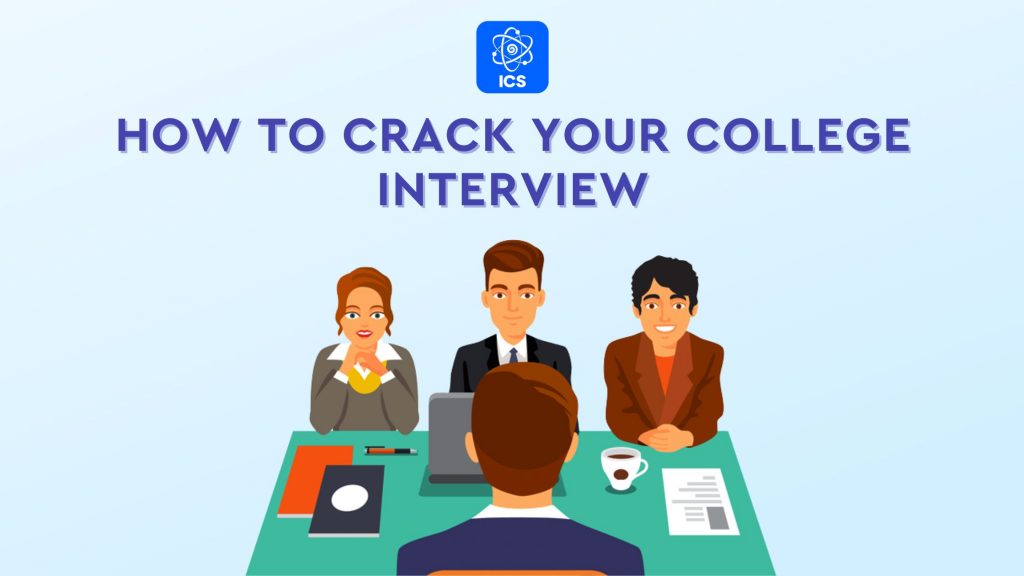
Cracking a college interview is about more than just answering questions—it’s your chance to make a lasting impression and prove that you’re genuinely interested in the program. Many students make the mistake of rambling about their family background, hometown, or age. While a brief personal introduction is fine if asked, the key is to get straight to the point. Focus on what matters most to the interviewers: your academic interests, motivation for choosing the course, and why you want to be a part of that specific campus.
1. Know Yourself
Before anything else, take time to reflect on who you are. What qualities define you? What have been the key milestones in your journey so far? Interviews often begin with “Tell us about yourself”—so have a clear, concise response that introduces not just your background, but what drives you, what you’ve achieved, and what you’re passionate about.
Sample Questions:
- Tell us about yourself.
- What are your strengths and weaknesses?
- Which experiences have shaped you the most?
2. Be Clear About Your Academic Interests
Start by confidently mentioning the subjects you studied in school and why they interest you. Be specific. What aspects of those subjects fascinated you? How did they influence your choice of course? Colleges are looking for students who have chosen their path deliberately, not by default. This clarity of thought shows that you have direction and purpose.
Sample Questions:
- Why did you choose this course?
- Which subject in school did you enjoy the most, and why?
- Can you relate a classroom concept to a real-world issue?
3. Know the College Inside-Out
Do your homework about the college. Familiarize yourself with its faculty, curriculum, student clubs, research opportunities, and campus culture. If the college is known for its entrepreneurship cell, social outreach programs, or industry tie-ups, mention how you see yourself participating in or benefiting from them. This level of insight indicates genuine interest and initiative.
Sample Questions:
- Why do you want to join this college?
- How do you plan to contribute to campus life?
- Are there any specific faculty members or programs here that excite you?
4. Share Your Story
A memorable interview often includes a compelling personal story. Think about an experience, project, summer school, internship, or challenge that helped shape who you are today. Maybe you organized an event, led a team, overcame a personal hurdle, or volunteered somewhere that changed your perspective. Stories stick—they humanize you and help interviewers connect with you on a deeper level.
Sample Questions:
- Tell us about a challenge you’ve overcome.
- What’s a project you’re proud of, and why?
- Describe a moment that changed your perspective.
5. Be Thorough With Your Subjects
If you’ve studied your domain subjects in school, know them well. You may be asked to explain or relate a concept to real-world scenarios. This is especially true for courses like economics, political science, psychology, or business.
Sample Questions:
- Can you explain [a key concept] from your subject?
- How does [a recent event] relate to what you’ve studied?
- Who is a figure in your field that you admire, and why?
6. Stay Updated and Informed
Keep up with current affairs, industry trends, and key developments in your field. Reading newspapers, journals, and relevant blogs can give you an edge. This kind of knowledge helps you confidently draw connections between theory and practice—exactly what interviewers are looking for.
Sample Questions:
- What recent event in your field caught your attention?
- How do you stay informed about your areas of interest?
- Do you follow any thought leaders or publications?
7. Have a Vision
You may be asked about your plans. Be ready with a thoughtful answer. Whether it’s pursuing higher studies, working in a specific industry, starting your venture, or contributing to a cause—ensure that your goals align with the course you’re applying for.
Sample Questions:
- Where do you see yourself in five years?
- What do you hope to gain from this course?
- What’s your long-term goal, and how does this college help you achieve it?
8. Honesty Matters
Never lie or exaggerate. Interviewers are trained to probe and cross-question, and dishonesty will likely be exposed. Authenticity builds trust—even a simple, honest answer is better than a fabricated one.
9. First Impressions Count
Dress in neat, formal attire. Your grooming and outfit should reflect seriousness and respect for the process. Avoid using slang, informal phrases, or overly casual body language. Be polite, maintain eye contact, and listen carefully before you respond.
Conclusion
A successful college interview is a combination of preparation, authenticity, and clarity. Know yourself, understand your subject, research the college, tell your story, and speak with confidence. Let your passion and purpose shine through—because, at the end of the day, interviewers are not just selecting students; they’re selecting future contributors to their academic community.
If you are still nervous about your interview and would like us to help, please fill out our inquiry form below and schedule a brainstorming session today. Our expert counselors will assist you every step of the way.
Let Our Career Experts Help You

About the Author
Mrs. Naheed Varma is a senior career counsellor and Head of CSR at the Institute for Career Studies. She brings 25 years of journalism experience, having worked with The Times of India, The Hindustan Times, and The Indian Express. At ICS, she leads student counselling, outreach programs, and the Postgraduate Diploma in Career Counselling and Guidance.
Connect on LinkedInLike this post? For more helpful articles, click the button below and subscribe to the FREE blog.


This is such a helpful reminder that college interviews are really about showcasing clarity and intentionality, not just reciting your resume. I especially liked the tip about connecting school subjects to your course choice—it’s such a practical way to demonstrate genuine interest and self-awareness.